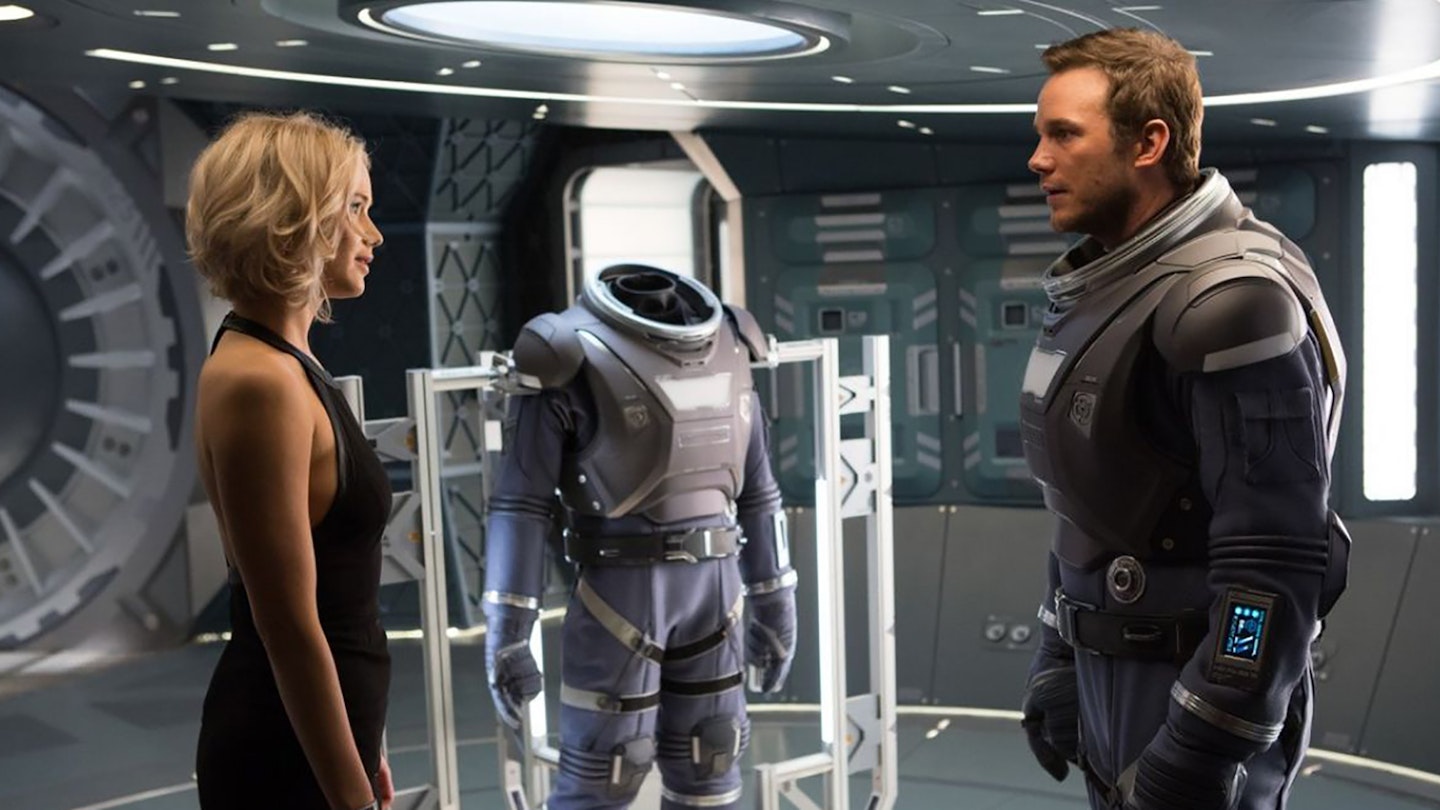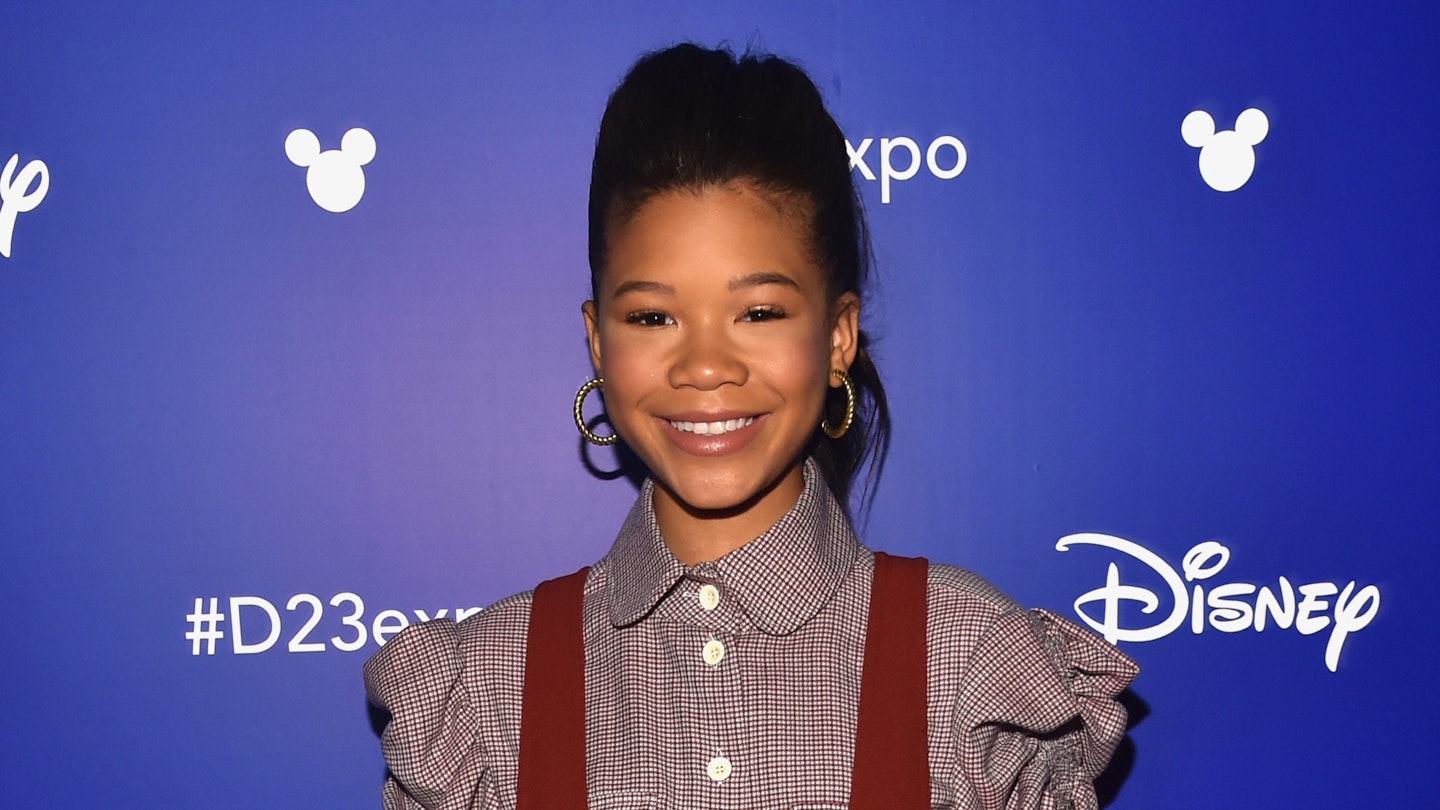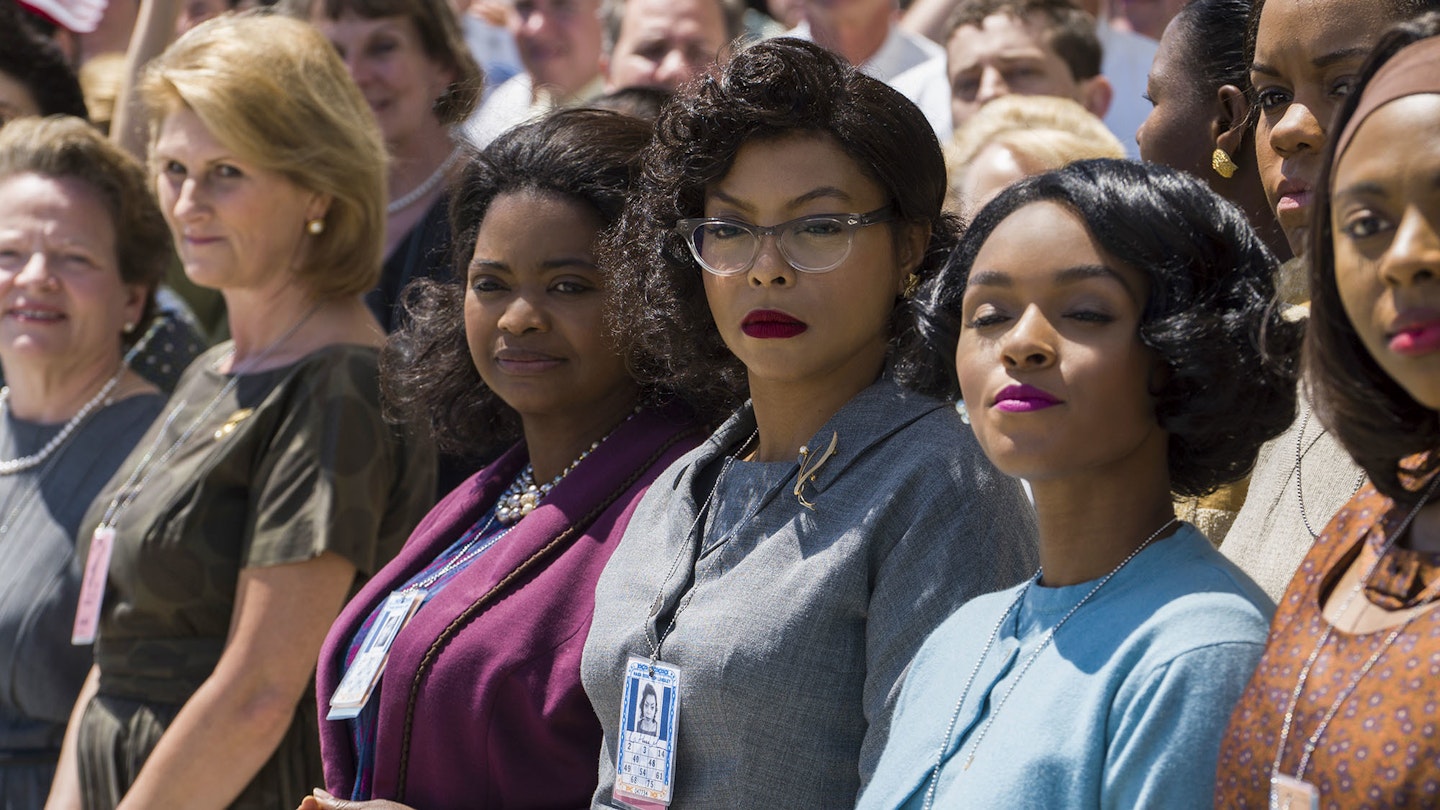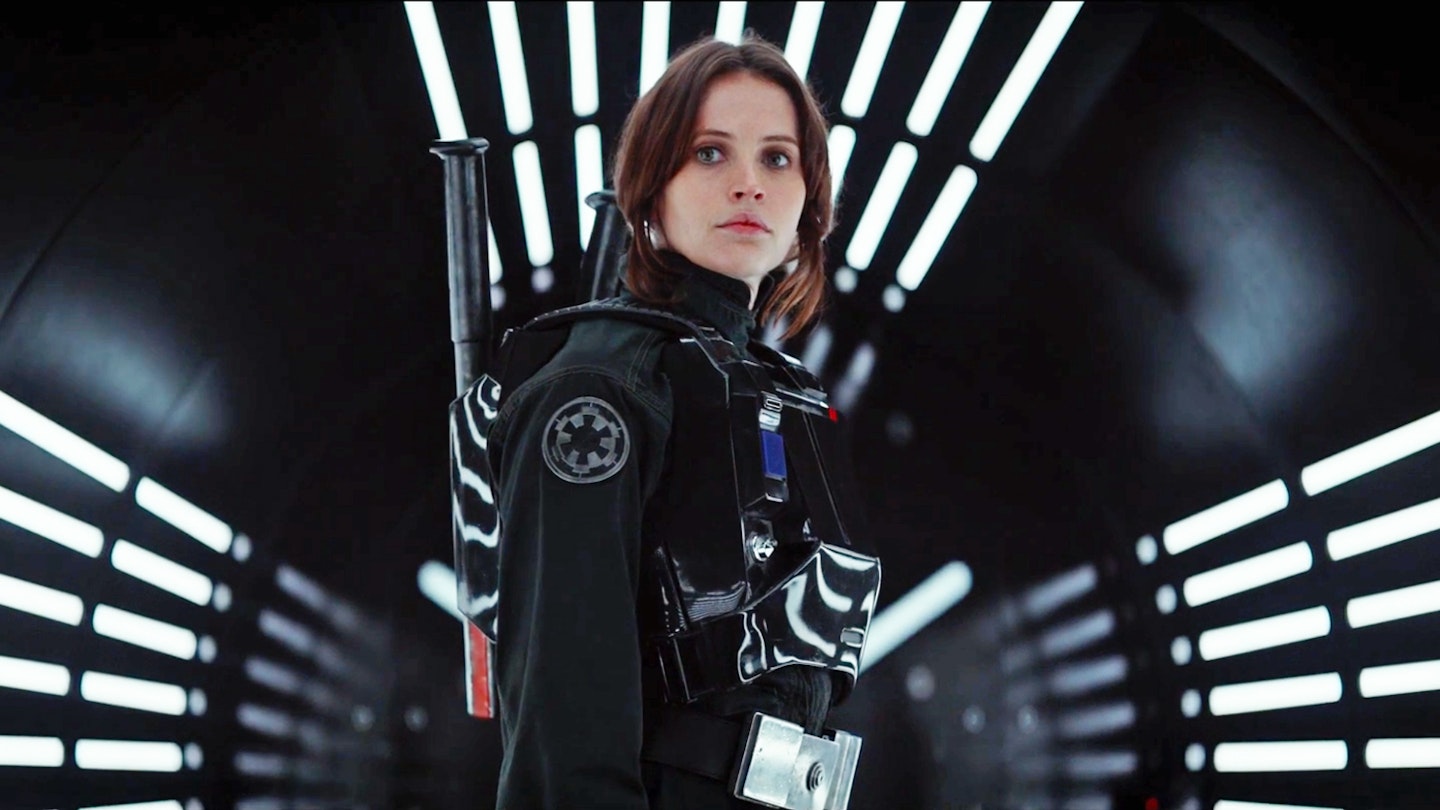If your money was on Bridget Jones’s Baby or Allied for 2016’s most heart-fluttering romance, The Imitation Game’s Morten Tyldum just cost you some cash. Neither the stammering charms of Mark Darcy nor Marion Cotillard and Brad Pitt’s torrid World War II affair manage the emotional tug of this unlikely three-hander about a pair of space travellers and a robot bartender.
New lovers act like they’re the only ones in the world, but Passengers’ dreamy-eyed duo become precisely that after an interstellar commute is disrupted by asteroids on the line. A cascade of system failures leads to a hibernation malfunction and, while their 5,000 neighbours sleep, Jim (Chris Pratt) and Aurora (Jennifer Lawrence) wander the ship alone.
As surprisingly traditional as it is undeniably effective.
Unorthodox the setting might be, but the blossoming romance is entirely familiar — from bantering over lunch to sharing a box of popcorn at the cinema. It just happens to play out within the glossy white halls of a starship resembling an Apple-sponsored shopping mall. Pratt and Lawrence are magnetic as the literal star-crossed lovers, convincingly seduced by each other over the passage of time; an awkward, space-suit-bumping kiss giving way to a passionate, Cheerios-all-over-the-floor breakfast shag.
Aside from an obtuse computer (voiced by London Underground’s Emma ‘Mind The Gap’ Clarke) and a clutch of skittering Roombas, their only company is Michael Sheen’s sagacious android barman. Arthur is the couple’s only sounding board — part relationship counsellor, part conscience and occasionally a necessary plot device. Sheen injects a welcome third perspective, breaking into the lovers’ solipsism and laying bare their flaws — which are more than just passing. Jim and Aurora’s relationship is built on a lie, one that covers obsession, self-interest and crushing guilt. The love story, far from saccharine, unfolds to provide the darker aspects of need and greed ample room to fester.
The couple’s divergent backgrounds make for early comedic fodder (her ‘Gold Class’ breakfast leaves him staring mournfully at a bowl of cosmic Weetabix), while Aurora’s introduction to the ship’s leisure facilities conjures images of Jack and Rose dancing in steerage. The Titanic parallels are felt throughout, sometimes in explicit nods (a giddy space walk stands in for ‘flying’ on the prow) and elsewhere in the films’ broader structure. Much like Cameron’s nautical yarn, Passengers’ early love story gives way to a latter disaster flick: metaphorically as the couple’s relationship is riven by betrayal, then literally as the malfunctioning Avalon begins a spiral towards destruction.
Having survived a trip almost as drawn-out and uncertain as the Avalon’s (Jon Spaihts’ screenplay appeared on The Black List back in 2007), Passengers is as surprisingly traditional as it is undeniably effective. A timeless romance wedded to a space-age survival thriller, it may be a curious coupling but Tyldum’s Turing follow-up is a journey well worth taking.








